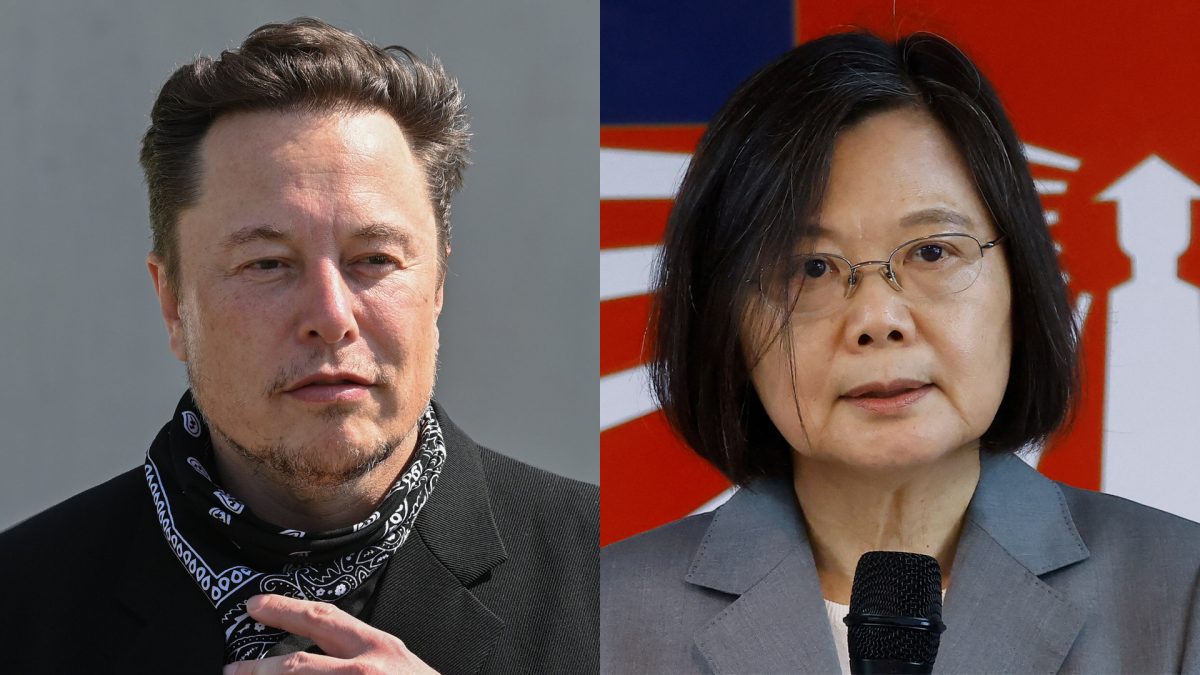In response to the ongoing threat of hostilities with China, Taiwan’s leaders are actively pursuing the development of a robust satellite system to ensure communication continuity during times of disaster.
Wu Jong-shinn, the director-general of the Taiwan Space Agency (TASA), revealed in an exclusive interview with CNN that Taiwan is currently in the experimental development phase of constructing indigenous communication satellites.
The proposed satellite system, once operational, will function just like Elon Musk’s Starlink satellite network, albeit on a much smaller scale. Starlink, operated by Musk’s SpaceX, has deployed a constellation of thousands of satellites to provide internet access globally, including in remote areas that lack conventional connections.
SpaceX’s technology has been uses by various entities worldwide, including the Ukrainian military during its conflict with Russia as well as medical facilities in Gaza following conflict with Israel.
Taiwan’s pursuit of its own satellite system arises partially from its inability to access Starlink due to SpaceX’s requirement for majority ownership in a proposed joint venture, which conflicts with Taiwanese laws.
Seeing the critical importance of communication resilience, Wu emphasised the significance of the satellite project as the agency’s most sensitive endeavor.
Taiwan’s unique geopolitical position, situated about 100 miles off the coast of China, is a great indicator as to why this project is being such a high priority. With China asserting its territorial claims over Taiwan and threatening military action if necessary, it is paramount that Taiwan takes all steps necessary to ensure that they have uninterrupted connectivity.
Impact Shorts
More ShortsCurrently, Taiwan relies on 15 submarine internet cables for connectivity, but these cables are vulnerable to damage, as shown by recent incidents where outlying Taiwanese islands were cut off from the internet due to cable damage caused by passing ships.
Experts warn that deliberate sabotage by Beijing, such as cutting internet cables around Taiwan, could lead to widespread disruption and panic.
To address these challenges, Taiwanese authorities have announced plans for the development of two communication satellites, with the first expected to launch by 2026.
Additionally, the government aims to assist private companies in launching four additional satellites to bolster the industry. However, experts caution that Taiwan would need hundreds of satellites to establish a comprehensive backup internet access system.
Brad Tucker, an astrophysicist, estimates that at least 50 satellites would be necessary for decent emergency coverage, with even more required for optimal reliability. While achieving full internet coverage with a few indigenous satellites may be unrealistic, experts agree that Taiwan’s space endeavors hold significant long-term value.
Till then, Taiwan seeks to enhance its communication resilience by partnering with existing satellite communication systems like OneWeb and maritime satellite systems. These partnerships, along with the establishment of 700 hot spots across the island by the end of 2024, aim to provide backup connectivity during emergencies, as demonstrated during a recent earthquake.
Taiwan’s space ambitions extend beyond communication satellites, with a focus on fostering a new industry to capitalise on international space projects. President Tsai Ing-wen’s commitment of NT$25.1 billion over the coming decade aims to support various industries, leveraging Taiwan’s expertise in semiconductor chips and precision machinery.
Wu emphasised Taiwan’s readiness to embrace this adventure more aggressively, citing ongoing efforts to develop a launch vehicle for satellite deployment into low-Earth orbit. With a solid foundation and ambitious goals, Taiwan’s space aspirations reflect its determination to secure its communication infrastructure and emerge as a significant player in the global space industry.
(With inputs from agencies)
)